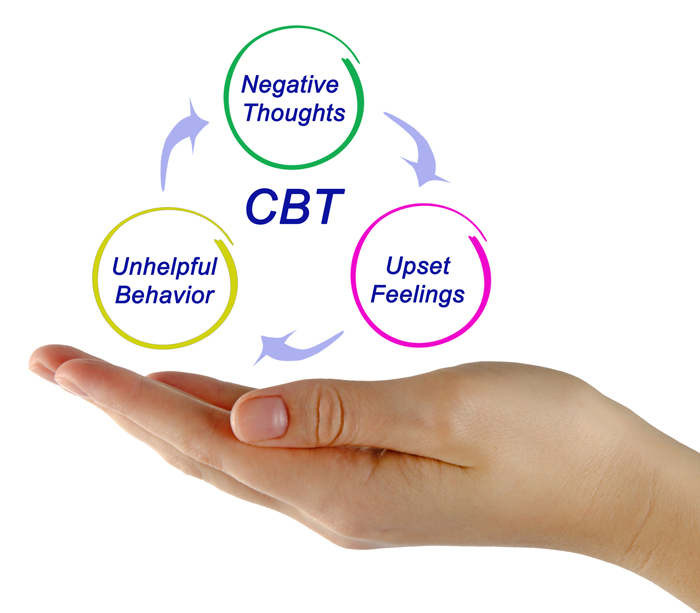
Navigating Client Resistance In Administration Consulting
Scaling Client Walls Counseling Today Archive
For example, if a customer in psychiatric therapy is uncomfortable discussing his/her daddy, they may reveal resistance around this topic. While the customer may be comfortable talking about other relative, they might alter the subject each time their dad comes into the conversation. If the specialist continues to probe this subject, the customer may even show resistance by missing therapy appointments or discontinuing treatment.
Try A Closure Event To Get Over Resistance And Celebrate Modification
Perhaps the biggest problem is not so much the customer's arguments, but their prospective invisibility. The customer might claim and even seem on board with the therapy process and the therapist's referrals, yet maintain their disagreement hidden. Cialdini's "principle of liking" says that we like to state yes to individuals we like.
Client Resistance In Treatment: How To Aid Difficult Clients
She claims this is something that is very important with all of her clients, but especially with those who often tend to be the most defensive and embarrassed-- mothers that have been referred to therapy by child protective services. Groves' customers are typically upset and protective, and she has actually located that the best way to start is by recognizing that fact and merely paying attention to what they have to claim. These customers normally think that no person wants their side of the story, Groves claims, because they declare that all authority numbers-- from the cops and courts to their legal representatives, probation policemans and child protective solutions-- decline to hear them out. Kerin Groves, a licensed expert counselor (LPC) with a personal technique in Denton, Texas, counsels people that are usually extremely hesitant individuals-- mandated clients. This approach communicates compassion while likewise generating information, Hagedorn claims. He includes that the blunder numerous well-meaning Visit website counselors make is to rather pay attention to their "righting response"-- the reflexive requirement to make whatever "ideal" for clients.

The word resistance is most typically acknowledged when discussing the circulation of electric present or an army or political motion. In psychology, especially in psychiatric therapy, resistance has a very comparable significance. Resistance in psychiatric therapy is typically defined in different ways by various counseling and restorative psychologists, however ultimately entails a client's aversion to alter and expand within therapy. Counseling is not just utilized when people are experiencing mental problems yet can additionally be utilized as a device for self-growth and self-understanding, aiding a person towards self-actualization. What locations of your life do you think it would certainly be advantageous to resolve, even though you may not intend to?

- Groves' customers are often angry and defensive, and she has actually located that the best method to begin is by acknowledging that fact and merely paying attention to what they need to say.
- One of one of the most efficient ways to do that is with psychological marketing guidance that focuses on making impressions matter, building successful partnerships and encouraging leads as an expertise authority.
- Ask to stay up, stay focused, and talk freely in this safe space.
- In psychology, especially in psychiatric therapy, resistance has an extremely similar definition.
- So leaders need to first step back and recognize that they need to make certain they're bringing staff members in addition to the trip and obvious in order to conquer that resistance to change.
They articulate some (moral) indignation or discontentment about or to the trainer, e.g., for asking the concern to begin with or about the difficulty of the concern (MacMartin, 2008) and, thus, they direct objection towards the coach and/or coaching procedure. In this way, a problem series obtains launched as opposed to answering the concern. Issues as very first pair components do not have entered second set components, yet might be followed by, for instance, providing a remedy, rejection, justification, rejection, excuses, or acceptance (Laforest, 2002; Schegloff, 2007; Couper-Kuhlen and Selting, 2018).
You provide some research, yet when she returns for the next visit, nothing has altered in your home. Resistance in psychology is the opposition of the therapy process in which a client rejects or rejects tips made by a psycho therapist. Resistance in psychoanalysis patronizes's subconscious or conscious objection to grow and transform within therapy or treatment. For example, therapy topics can be psychologically difficult to talk about, as a result a client might be immune to opening to their therapist. In addition, if the client believes change is hard or scary, or if the client was referred by a 3rd party, they might be resistant to treatment.
They have to keep in mind that, eventually, resistance can offer valuable input to the therapeutic procedure, providing new insights and the opportunity for growth. If the client is standing up to and the therapist obtains irritated or irritated, you have two individuals combating each other, and the therapeutic partnership breaks down. Competent counselors equilibrium exactly how they deal with avoidant actions, remaining conscious the customer's demands and feelings while still taking on the reason for remaining in treatment.